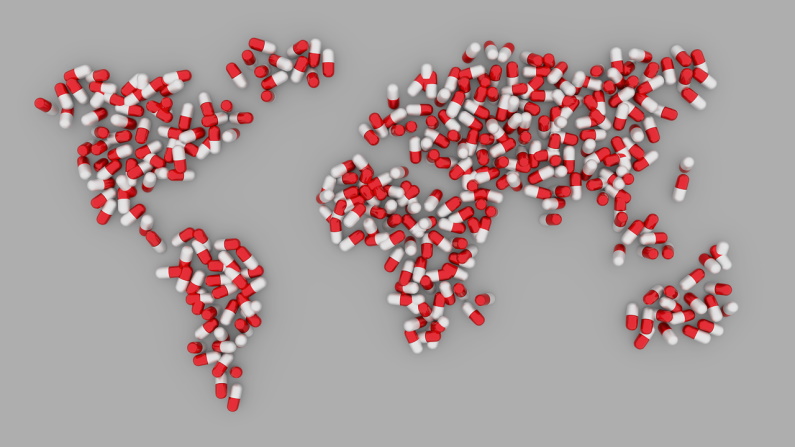As of 2019, an epidemic of clinical depression has manifested itself in the form of suicides across the United States. Suicide is the most common cause of death in those aged 15-34 in the United States and is the leading disability of all individuals worldwide. Women are more likely to be susceptible to attempting suicide, and men are actually four times as likely to die from it. Because of these alarming statistics and the fact that 3% of the US population suffers from severe depression, we are reaching epidemic levels. Researchers estimate that depression can take ten years off of an individual’s overall lifespan.
While it’s still a stigma and it’s still overlooked, these far-reaching and negative effects are worth a discussion.
What’s Created an Epidemic of Clinical Depression
- Roughly 800,000 deaths are from suicide annually
- In the last decade, individuals facing depression worldwide increased by more than 18%
- In 2017, there were more than double the number of suicides (47,143) as compared to homicides (19,510) in the United States
- Depression in adolescents from ages 12 to 17 has increased from 8.7% to 11.3%. This correlates with 3.2 million adolescents experiencing at least one episode of depression
- Less than three years ago, diagnosed patients had more outpatient and emergency room visits, more prescriptions for depression medication, and more in-patient visits. As a result, healthcare costs skyrocketed
- In third world countries, roughly 75% of individuals with mental illnesses go undiagnosed and therefore untreated, resulting in nearly 1 million suicides annually
Depression is powerful, and it’s critical to note distinctions between depression and sadness. When depression becomes out of control, thoughts of suicide are not the only risk factor. Sleep patterns and diet are impacted, which takes a toll on your physical health, which then becomes cyclical because you may feel worse overall. When these occur in the body, individuals are at risk for bigger picture illnesses like diabetes, heart disease, and stroke.

Symptoms of Clinical Depression
The following are symptoms that doctors use to diagnose depression. If an individual has five or more of these symptoms (as provided by the Diagnostic and Statistical Manual of Mental Disorders) longer than two weeks, the illness can be diagnosed.
- Depressed mood
- Decreased interest or pleasure in doing things
- Weight loss or weight gain, or increased or decreased appetite
- Insomnia or sleeping too much
- Moving slowly or being fidgety or restless
- Fatigue or loss of energy
- Feelings of excessive guilt or worthlessness
- Difficulty concentrating or making decisions
- Recurrent thoughts of death or suicide
- 7.6% of Americans over the age of 12 have moderate to severe depression
Dealing with Depression
The best thing to do is to see a doctor. Before a doctor prescribes medication, they’ll ask several questions to diagnose you first. There are other possible root causes of symptoms, such as hypothyroidism and vitamin deficiency (B12). Other contributing factors should always be ruled out before beginning a depression medication regimen.
Medication
Antidepressants, specifically serotonin reuptake inhibitors (SSRIs) have a powerful and lasting effect on those suffering from the illness. While side effects can be daunting and difficult to adjust to in the beginning, their impact can be well worth it. Some common SSRIs on the market as of 2019 are:
- Prozac (Fluoxetine)
- Zoloft (Sertraline)
- Lexapro (Escitalopram)
- Celexa (Citalopram)
Non-Serotonin Norepinephrine Reuptake Inhibitors (SNRIs) are also available in the forms of:
- Effexor (Venlafaxine)
- Cymbalta (Duloxetine)
- Pristiq (Desvenlafaxine)
- Savella (Milnacipran)
- Fetzima (Levomilnacipran)
If side effects are too powerful and long-lasting, it’s okay to try a switch. Stay on track with your doctor regarding side effects and progress toward less depression.

Cognitive Behavioral Therapy
Another option is to try cognitive behavioral therapy. This is a type of treatment that encourages individuals to replace negative thoughts with positive thoughts. More specifically, Mindfulness-Based Cognitive Therapy (MBCT) is a type of meditation therapy that can provide long-lasting benefits. Researchers have looked at different types of mindfulness meditation and have found good results: MBCT has almost the same effect as medication depression and even anxiety. MBCT is especially impactful for individuals who have suffered in their lives due to outside factors (i.e. war veterans, child abuse, etc.)
Diet and Exercise: The Usual Suspects
You can’t depend on medication alone. It’s imperative to stay physically healthy and eat beneficial foods. Poor health and nutritional deficiencies play a much larger role in depression than people give them credit for, and for this reason, staying ahead of the game only helps.
Dealing with an Epidemic of Clinical Depression
Depression is invasive – it can take over your entire life and it can be fatal. It currently affects over 300 million people worldwide. Because of this epidemic, healthcare costs for depressive disorders have soared to unimaginable heights. According to the World Health Organization, roughly $1 trillion in productivity is lost annually. This number seems infinite and it is discouraging to watch it increase as each day goes by.
While stigma should end over depression, we have a much larger issue – it needs to be curbed. Whether its modern lifestyle, physical health, or society issues as a whole, clinical depression is an epidemic that needs to be addressed by taking a deeper look into its root causes. Why is it happening? Why are we getting worse? Is it truly chemical imbalances or is there something more alarming going on in our bodies? How can we capture the depths of this illness and address all of its facets, grotesque and terrifying as they are?
For more information on clinical depression, visit http://depression.org/.






